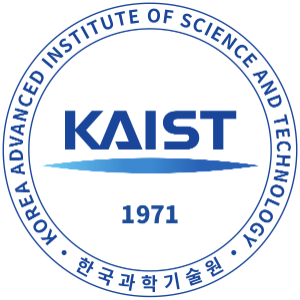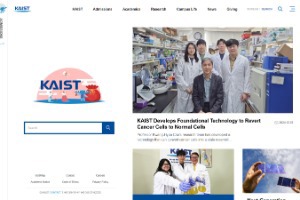KAIST - Korea Advanced Institute of Science & Technology

Korea Advanced Institute of Science & Technology (KAIST) is a national research university located in Daedeok Innopolis, Daejeon, South Korea. It was founded in 1971 by the Korean government as the nation's first public, research-oriented science and engineering institution. It was initially modeled after the Massachusetts Institute of Technology (MIT), with an emphasis on hands-on learning and research.
In its early years, KAIST focused on developing undergraduate programs in science and engineering. In the 1980s, the university began to expand its graduate programs and research activities. In the 1990s, KAIST established new schools in business and the humanities.
Today, KAIST is a leading university in science and engineering and is a major center for entrepreneurship and innovation. It is one of the most prestigious universities in South Korea and is ranked among the top universities in the world.
KAIST has played a significant role in the development of South Korea's science and technology sector. The university has produced many of the country's leading scientists, engineers, and entrepreneurs. KAIST has also been instrumental in the development of new technologies, such as semiconductors, telecommunications, and robotics.
KAIST offers a wide range of undergraduate and graduate programs in science, engineering, business, and the humanities. The university has five colleges, seven schools, 13 graduate schools, and 27 departments. It has a strong international focus and attracts students and faculty from all over the world. The university offers English-language programs at all levels and has a number of exchange and partnership agreements with universities around the world.
KAIST is a highly selective university, and admission is based on a combination of academic achievement, extracurricular activities, and letters of recommendation.
Based on the QS World University Rankings of 2025, KAIST - Korea Advanced Institute of Science & Technology is positioned as the #53 top university in the world, which makes it the #2 top university in South Korea. The university's global rank is improved by 3 points from last year.
Institute Profile
Get a quick snapshot of the institute's key details.
| 2025 Ranking | #53 #2 |
|---|---|
| University Name | KAIST - Korea Advanced Institute of Science & Technology |
| Name in Local Language | 한국과학기술원 |
| Acronym | KAIST |
| Year Established | 1971 |
| Governing Type | Public |
| Student Body | Co-education |
| Highest Degree | Doctorate |
| Campus Type | Sub-urban |
Location
The institute is located in Yuseong-gu, Daejeon. Find the address and map of the institute below.
| Address | 291 Daehak-ro(373-1 Guseong-dong), Yuseong-gu, Daejeon, South Korea |
|---|---|
Contact
Connect with the institute easily! Find their contact details.
| Phone | +82-42-350-2114 |
|---|---|
| Fax | +82-42-350-2210 (2220) |
| Website |

|
| Click here to send email | |
| More Links |
Admission Info
The admission process at KAIST is highly competitive, with different requirements for domestic and international applicants. International students must submit academic transcripts, proof of English proficiency (such as TOEFL or IELTS), and may be asked for additional materials such as personal statements or letters of recommendation. Undergraduate applicants are typically required to take the KAIST Entrance Exam, while graduate applicants are assessed based on their academic record, research interests, and relevant experience. The university also looks for students who demonstrate a passion for technology and innovation. Prospective students should consult the specific program's admission criteria for detailed information.
Scholarship and Financial Aids
KAIST offers numerous scholarships to attract top-tier talent from around the world. Scholarships are available for both undergraduate and graduate students and are awarded based on academic excellence, financial need, and research potential. For international students, KAIST provides generous scholarships that cover tuition, living expenses, and sometimes even airfare. Additionally, there are various research-based scholarships for graduate students, enabling them to focus on their studies and research without the burden of financial constraints. KAIST's commitment to supporting its students financially ensures that those with the drive and ambition can access world-class education regardless of their financial background.
Programs and Courses
Get a quick overview of programs and courses offered at this institute.
| Bachelor's Degrees | Master's Degrees | Doctorate Degrees | Diplomas | |
|---|---|---|---|---|
| Arts & Humanities | n/a | n/a | n/a | n/a |
| Business & Social Sciences | n/a | n/a | n/a | n/a |
| Engineering | n/a | n/a | n/a | |
| Language & Cultural Studies | n/a | n/a | n/a | n/a |
| Medicine & Health | n/a | n/a | n/a | n/a |
| Science & Technology | n/a | n/a | n/a |
Click on the following button to explore a detailed list of programs and courses of this institute.
View Course ListGlobal Ranking History
The following chart shows how the global ranking of this institute has changed over the last 5 years.
Related Articles
Stay informed with the following articles related to the institute or higher education in South Korea.
